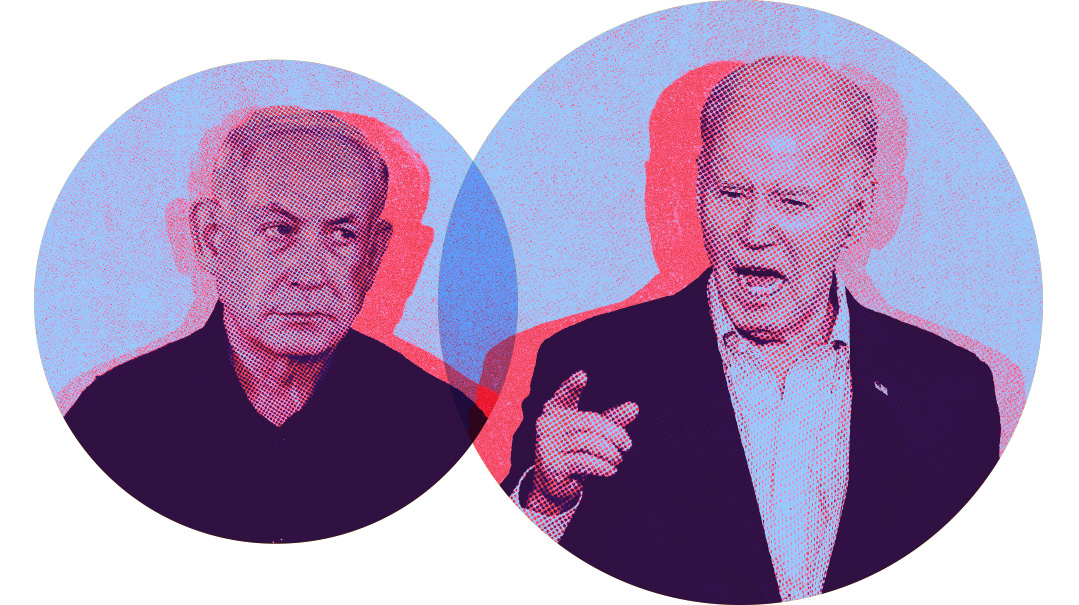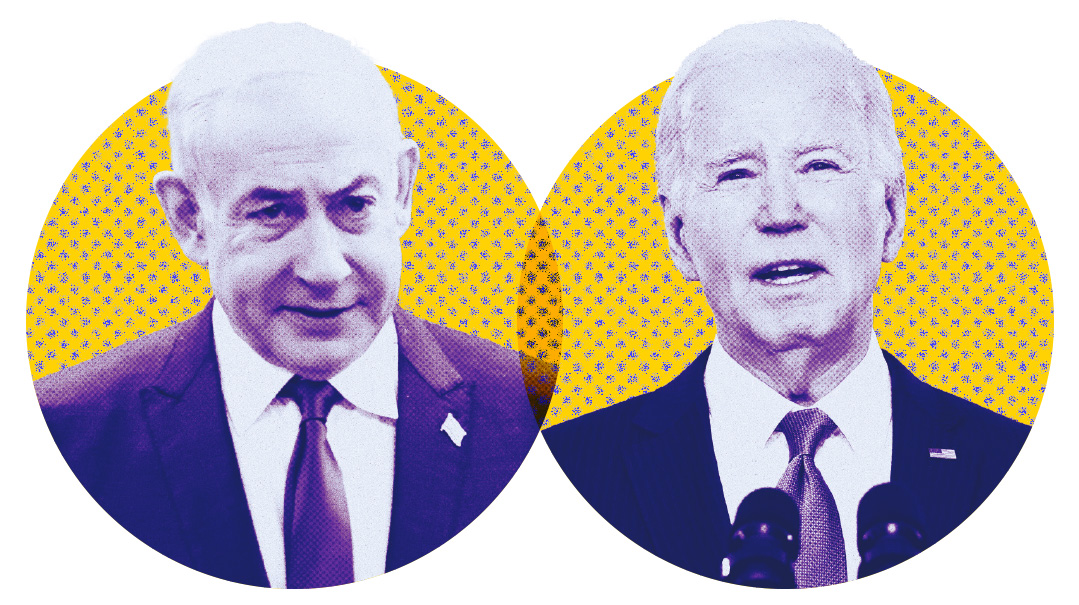The Bennett-Bibi Showdown, 5 Takeways

In retrospect, is there anything Netanyahu could have done differently?

Binyamin Netanyahu’s dramatic finale was being played out at press time, and barring any unexpected developments, his consecutive 12-year reign as prime minister will conclude later this week, or early next week, after a new government is sworn in. In retrospect, is there anything Netanyahu could have done differently? And what are the odds that the forces that coalesced to oust him will remain unified once they actually have to stand for something, rather than against someone?
1) Ready, Aim, Backfire
It’s abundantly clear that Netanyahu’s strategy of unifying the religious right-wing parties and splitting the Arab parties before the last election backfired badly. Those parties captured 11 seats — some at the expense of the Likud. But Bibi’s political woes started long before the March 2021 vote. Netanyahu failed to form a stable coalition after any of the last four elections, as he lost the confidence of one coalition partner after another, not to mention members of his own party.
Netanyahu couldn’t bow out gracefully, either, considering the office of prime minister offered him some refuge from the criminal charges filed against him. Boxed in on all sides — by rivals, rebels, and prosecutors — Netanyahu saw all the rabbits hop out of his political hat.
2) Hit the Showers, Ace
The Likud prides itself on stability and loyalty, with just five party leaders in its 48-year history. Labor, meanwhile, has had five in the last decade alone. Tradition is important in politics, and it’s certainly understandable why the Likud stuck it out to the very end with its storied leader.
But ask any baseball manager who trudges from the dugout to the mound to pull his ace pitcher when it’s clear that he’s run out of gas, and he will tell you the team is bigger than its biggest star. Once the anti-Netanyahu forces had dug their cleats into the turf, the Likud should have found an honorable way to ask Bibi to step aside. The power struggle to replace Bibi as party head is fully underway, but had they sent their ace to the showers to a standing ovation, a relief pitcher might have saved the game for the party that won — and has now wasted — 30 seats.
3) Revenge Is Sweet in Politics
Politics is a cutthroat business. During the course of a long political career, a politician is certain to make enemies and arouse jealousy, especially someone as successful as Netanyahu, who achieved the statesman status reserved for rare individuals. Avigdor Lieberman, Naftali Bennett, and Ayelet Shaked were all top staffers for Netanyahu during his early days on Balfour Street. All left in a huff, feeling that Netanyahu had shafted them in one way or another.
Bibi’s a tough boss — he’s talented, demanding, and has a condescending streak. Politics is also a game of egos. Once Gideon Saar split from the Likud, he became the fourth leg of an unwavering anti-Bibi coalition bent on leveraging the combined 20 seats they won in the last election to exact political revenge on Bibi.
4) If Only Bibi’s Trial Had Started Sooner…
Netanyahu’s attorneys did what most cagey lawyers would do — delay the proceedings to find the most favorable time to make their case. That may have worked against their client this time. The forces arrayed against Netanyahu campaigned incessantly on the platform that he could no longer be trusted to make decisions in the best interests of the nation, and that every move he made was designed to save his own skin from the three criminal cases filed against him.
So it’s ironic that Bibi’s removal from office comes at precisely the time when the main case against him is fraying. Israel’s English language press is giving only scant coverage to Bibi’s trial on breach of trust and bribery, but the Hebrew-language media is replete with stories of how the testimony of the state’s main witness has been discredited under cross-examination, and how this turn of events has cast aspersions on the integrity of the prosecution. For Netanyahu, it’s too little, too late, but had his trial started months ago and progressed in the same fashion, the political case being prosecuted against him might have suffered a similar fate.
5) Does Bennett Have a Prayer?
Binyamin Netanyahu perennially received the credit for being Israel’s most wily politician. Naftali Bennett has clearly surpassed Bibi. There is no other way to explain how someone who won a measly seven seats in the Knesset could parlay those chips into becoming prime minister. Most of Bennett’s supporters accuse him and his sidekick, Ayelet Shaked, of political breach of trust for joining a coalition with the left, with support from Arab parties, and say they will pay with their political lives in the next election. (Both have also received actual threats on their lives from disgruntled voters.)
I wouldn’t cast my vote yet with the doomsayers. Two weeks ago, I wrote that Bennett voters fooled themselves more than Bennett fooled them. Bennett said he was running for prime minister and wasn’t going to play second fiddle to anyone. Bennett also indicated months ago that he would forgo some of his nationalistic positions, such as sovereignty over Judea and Samaria, for the sake of a unity government. His constituents paid no heed and believed what they wanted to believe about Bennett.
As prime minister, he will have a chance to prove himself in a way he couldn’t as a junior coalition partner. If he tries to be all things to all people and twists in the wind to placate coalition partners who range from center-right to far-left to Israeli Arabs, then he will be an abject failure. If he enjoys at least a modicum of success, he is well-positioned to build himself a new and larger political base.
(Originally featured in Mishpacha, Issue 863)
Oops! We could not locate your form.












